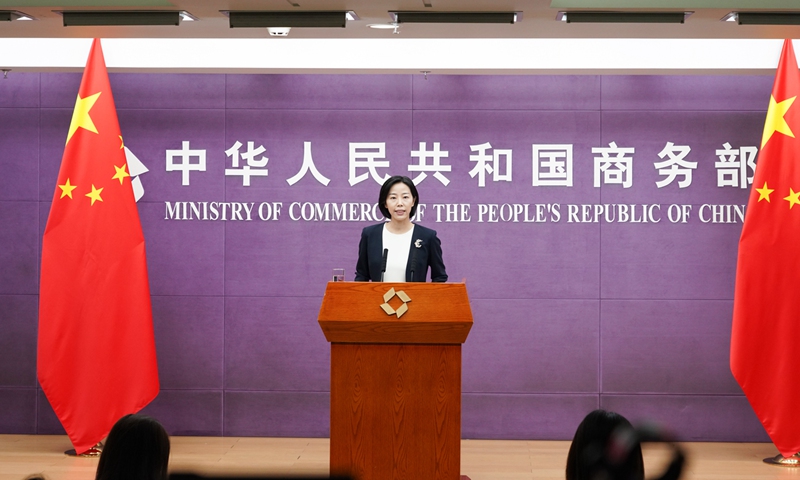China refutes claims of ‘trade curbs’ on Australian coal, says permits can be applied for normally

Shu Jueting
China's Ministry of Commerce (MOFCOM) on Thursday pushed back against foreign media claims of Chinese "trade curbs" against Australian coal imports, saying such misleading claims are inappropriate and China's automatic permit management system for coal imports is functioning normally.
Bloomberg reported on Tuesday that China has removed "all remaining curbs" on Australian coal imports, which signals "an end to trade restrictions imposed in late 2020." The report cited unidentified people "familiar with the decision." The news drew widespread attention amid growing expectations for improving bilateral ties.
Asked about the report at a press conference on Thursday, Shu Jueting, a spokesperson for the MOFCOM, stressed that "China manages foreign trade in accordance with WTO rules and Chinese laws and regulations, and it is inappropriate to misinterpret the relevant management methods as restrictive measures."
Shu said that China uses an automatic licensing management system for coal imports, and automatic permits for coal imports can be applied for normally, adding that China's inspection and trade remedy measures on relevant commodities are strictly in line with Chinese laws and regulations and WTO rules.
"China is willing to conduct talks on some technical issues in bilateral trade that are of concern to each side and find mutually beneficial and win-win solutions," Shu said, while urging Canberra to work with the Chinese side and provide a fair, open and non-discriminatory business environment for Chinese firms.
A Chinese coal industry analyst said that foreign media claims are completely baseless, as certain shipments of coal are entering, while others are not, depending on the actual demand of companies and other factors, so this Bloomberg report is very "unprofessional."
What is happening is that there is a gradual recovery in Australian coal imports, as market confidence is also recovering, the industry analyst said, apparently referring to growing bilateral interactions in recent months.
Chinese and Australian officials have conducted several rounds of high-level meetings, after the new Australian administration expressed publicly the desire to repair ties with China, its biggest export market, amid multiple domestic economic challenges. Most recently, according to public statements, Chinese Foreign Minister Qin Gang met with Australian Minister for Foreign Affairs Penny Wong on the sidelines of the G20 Foreign Ministers' Meeting in New Delhi on March 2.
During the meeting, Qin said that the two countries have restarted or resumed institutional dialogue and consultation on diplomacy, economy and trade, among others, and should continue to promote dialogue and exchanges at all levels, while also urging Canberra to provide a fair, just and non-discriminatory business environment for Chinese enterprises to invest and do business in Australia.
The repeated calls from Chinese officials for Australia to treat Chinese firms fairly reflects Canberra's lack of concrete steps to improve the business environment for Chinese businesses, even as it seeks to expand its exports to China, experts said.
"Australia is only asking China to import Australian products, but it has actually made no improvement with regard to Chinese investment," Yu Lei, a chief research fellow at the Research Center for Pacific Island Countries of Liaocheng University, told the Global Times on Thursday.
Meanwhile, there are growing complications in bilateral ties, as Australia increasingly aligns itself in the US' ill-intended attempt to stir up tensions in the Asia-Pacific in order to contain China's rise. This week, leaders of the US, the UK and Australia announced that Australia will obtain nuclear-powered submarines, under their so-called AUKUS alliance, which drew widespread criticism in the region.
"The latest joint statement issued by the US, the UK and Australia shows that the three countries, for their own geopolitical interests, have totally disregarded the concerns of the international community and gone further down the wrong and dangerous path," Wang Wenbin, a spokesperson for the Chinese Foreign Ministry, said on Tuesday.
While it remains to be seen how the move will further affect China-Australia ties, Yu said that there is no doubt that in international relations, political moves affect economic ties.


